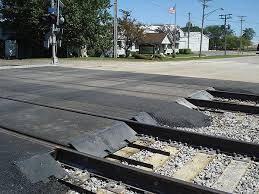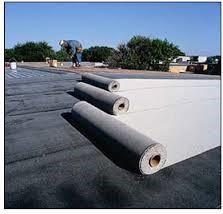Application and properties of Bitumen
1-Paving application
Bitumen is an essential component of any pavement and is used widely throughout the world. Almost ninety percent of bitumen is used in road construction. The main use of bitumen in the world is in the construction of roads, from motorways to private access roads, but bitumen is also being increasingly used on footways due to the lower risks of trip-hazards and cracking that it provides compared with rigid modular paving units like flags and slabs. On the other hand, Bitumen materials give good performance and durability under the wide range of climatic and traffic conditions.
Bitumen is a crucial component of asphalt - the most widely used material for constructing and maintaining roads in the world. Bitumen Roads and Bitumen driveways are obviously the most common uses of bitumen products. Bitumen roads and bitumen driveways are easily laid and provide a cheap cost-effective form of roadwork. More and more, bitumen is used for transportation areas or for specific applications, such as in roads, at airports and as base courses for railway tracks and are also widely used in tunnels. Most of the world's paved roads are surfaced with bitumen, which gives good performance and durability under the most heavily trafficked conditions.


Paving in tunnels
The use of bitumen in road tunnels is mostly related with safety in tunnels and the reaction to fire of asphalt. the construction issues of paving bitumen in tunnels, noise reduction, skid resistance, maintenance and lightness in tunnels as well as the safety aspects with regard to paving activities and the reaction to fires in tunnels.

Airfield
Every airport operator is faced with the need to maintain airside pavements in good order for safe and efficient aircraft operation using the available budget. There are differences between airfield and roadway pavements. Airfield pavements are subjected to a greater range of wheel loads, and wheel load applications are relatively infrequent and more spatially distributed (less channelized) as compared with roadway pavements.in other words, Pavements at airports are subjected to heavy, low speed and standing loads. For these so-called semi-rigid pavements the asphalt mixture need to be designed for resistance to permanent deformation and resistance to reflective cracking. However, both airfield and roadway pavements are built and maintained using the same construction technology (materials, construction equipment, and construction methods), are supported by similar subgrade soils, and are exposed to a similar environment..

Bitumen in Railway Tracks
The use of bitumen in railway construction provides a positive contribution to the bearing capacity of the structure. It improves both the stability and the durability of the structure, which contributes to the reduction in the need for maintenance. In addition, the use of asphalt also helps to reduce vibration and noise. The properties of bitumen and asphalt offer good opportunities to apply this type of material in railway track construction. This has been proven in various applications, both for heavy loaded tracks and for high-speed tracks..
2- Roofing application
The global bitumen roofing industry, which consumes about ten million metric tons of bitumen per year worldwide, encompasses a broad range of products and application practices. Like bitumen used in other industries, bitumen used in roofing is engineering materials made to meet varying physical properties suited to disparate commercial applications. Thus, bitumen roofing products are made from lower-softening-point straight run bitumen and from oxidized bitumen that have been processed along an extensive range of softening points. Straight-run and air rectified bitumen is used to make polymer modified bitumen products as well as underpayments and liquid roofing products such as coatings and cements. Oxidized bitumen processed to higher softening points are used to make roofing shingles, roofing membranes and built-up roofing systems. Other roofing products require bitumen with different physical properties calling for still other levels of oxidation.

3- Other
Bitumen’s waterproofing properties; durability and resistance to heavy loads are applied in industrial and floating floorings, roof top car parks, hydraulic construction and pipe coating. Where strength and weatherproofing are essential requirements, bitumen is a prime contributor to the performance of a vast range of final products. Bitumen membranes are also extensively used as sound absorbent membranes in the auto-car market.
Bitumen waterproofing products are quick drying and can be easily brushed, sprayed or trowelled on the area you want protected whether that be on the roof or in the swimming pool.
Bitumen is also used in the manufacture of printing ink and rubber. When added with oil, Bitumen improves the wetting of fillers and pigments, this is something that is usually achieved by adding other oils
